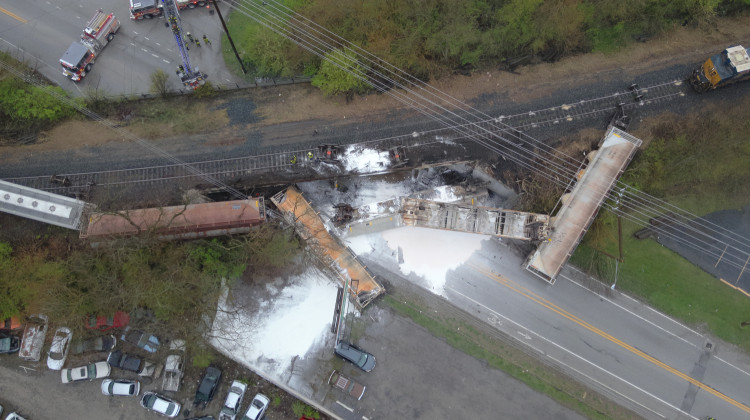Indiana’s first official Thanksgiving Day was Dec. 7, 1837, following a proclamation by Governor Noah Noble at the time.
In 1863, Indiana was joined by all the states of the Union North in celebrating a national Thanksgiving Day. This was declared by proclamation of President Abraham Lincoln, according to Suzanne Hahn, vice president of Archives and Library at the Indiana Historical Society.
However, what Indigenous people are taught about the holiday holds a different meaning from the settler history that underlined these proclamations.
Thanksgiving history has changed through history
“Thanksgiving tends to be a controversial time of the year for us because what people considered Thanksgiving history never happened. People think it’s about settlers and natives coming together,” said Carolina Castoreno, executive director of the American Indian Center of Indiana.
She is an enrolled member of the Lipan Apache Tribe of Texas and is of Mescalero Apache descendent.
“The first recorded Day of Thanks was when settlers massacred the Pequot Indians.”
In historical accounts of American record as traditionally taught, in the fall of 1621, a group of Wampanoag Indians came together with white Pilgrims, who were facing hardship at the time, for a shared meal.
Castoreno said the first official mention of a “Thanksgiving” celebration is in 1637 after English colonists massacred an entire Pequot village and then celebrated their victory.
“What we consider our traditional Thanksgiving now links back to Lincoln who at the time [during the Civil War] was dealing with a divided nation. He wanted everybody to halt the fighting and spend time with their families. That’s a more accurate depiction of what we celebrate today,” said Castoreno.
“I believe we can have a more honest conversation about the holiday. Some choose not to celebrate it or celebrate it in their own ways. Some of us give thanks for the harvest, and that’s common in our communities.”
The holiday’s history
She said for some Native American tribes, Thanksgiving is a day of mourning. Transparency about the reality of history can lead to talks of reconciliation.
“I was born and raised in Northern Michigan in a little village called Peshawbestown on a reservation,” said Monica Raphael, Thomas G. And Susan C. Hoback curator of the Great Lakes Native Culture and Community Engagement for the Eiteljorg Museum.
“I was raised in a very traditional home, and we celebrated Thanksgiving to express our gratitude; to share that we are grateful. But we also recognize the fact that there were many atrocities that happened to us as native people.”
She said the way dominant society views Thanksgiving is not the way that they do.
Historically, the Wampanoag people did provide food for the European settlers. The tribe taught them how to plant crops and showed them where to fish and hunt.
Many view this 1621 event as the first Thanksgiving, but the tribe’s support was met with an eventual genocide of their people and takeover of their land.
The pilgrim’s first thanksgiving did not include inviting the tribe for a harvest meal either. Raphael said the tribe’s intentions were guided by hospitality and peace.
Raphael makes it a point to instill the true history of the holiday in her children and grandchildren.
“We are a resilient people. We are a proud culture with many traditions blessed to have been passed down to us. Today, let’s remember that. How can we provide peace in a country and a world in a way that our people did.”
 DONATE
DONATE







 Support WFYI. We can't do it without you.
Support WFYI. We can't do it without you.